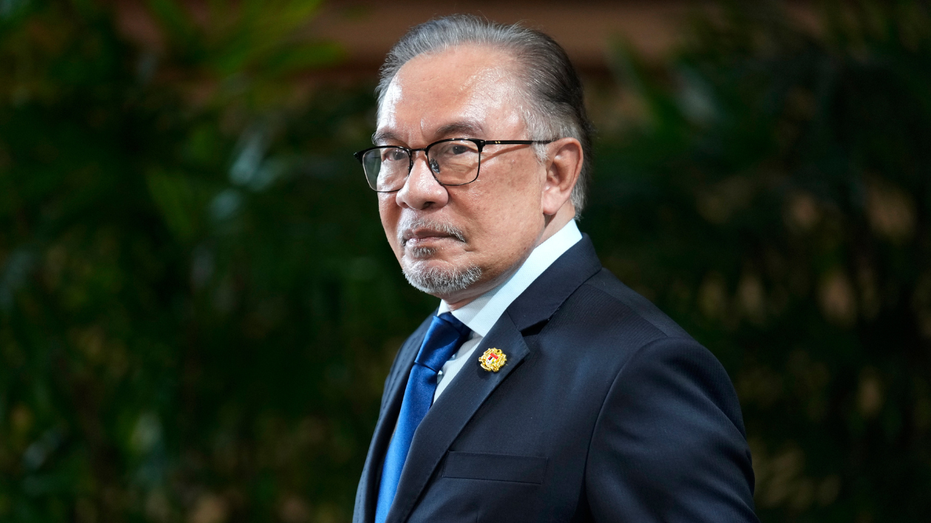Malaysia seeks strong ties with US but not 'phobia' of China, PM says
Malaysian Prime Minister Anwar Ibrahim voiced his country's open approach to international relations, saying that Malaysia doesn't hold a "China-phobia" policy.

Malaysian Prime Minister Anwar Ibrahim said Thursday his country does not have a "China-phobia" policy and wants to engage both Beijing and Washington, expressing hopes for both powers to resolve their differences.
Anwar, who is attending a Nikkei annual conference in Tokyo, said China is an important neighbor as it grows economically and militarily.
"While I maintain excellent relations with the United States, Japan and (South) Korea, I think for Malaysia and for the region, it is better to continue to engage with China," he said.
CHINA LAUNCHES MASSIVE MILITARY DRILLS AROUND TAIWAN AS ‘PUNISHMENT’ FOR ELECTING NEW PRESIDENT
"We will continue to engage and consider the United States as an important ally and at the same time enhance our collaboration with China." He stressed that Beijing is "too close, too important and too strategic to ignore."
Anwar said Malaysia hopes China and the United States will "resolve their differences." He also urged the U.S. to abandon protectionism and respect competitiveness.
He later met with his Japanese counterpart, Fumio Kishida, and agreed to further strengthen their cooperation in a wide range of areas including maritime security, energy transition, cyber security and supply chain resilience, under the bilateral ties which were elevated to comprehensive strategic partnership last year.
Japan, a key U.S. ally in the region, sees China’s growing influence as a threat and has stepped up security and economic ties with ASEAN countries, many of which have territorial disputes with Beijing in the South China Sea.
Anwar also called for a ceasefire between Israel and Hamas, as he defended his meeting with the militant group's leaders in the Qatari capital Doha last week. It was not a move to promote terrorism but to stop the "humanitarian crisis" in Gaza, he said.
The Malaysian leader criticized Washington for not doing enough to stop mass killings in Gaza.
"It is unfortunate that the U.S. is not using all its might, influence and resources to end the killings. That’s all they were asking," Anwar said.
He called for a peaceful resolution and respect for the two-state solution "because that would ultimately ensure peace."
Anwar said the recent wave of pro-Palestinian student protests in the U.S. reminded him of anti-war movement during the Vietnam War and said there is a "systemic shift" of how the conflict is now viewed.
What's Your Reaction?
















